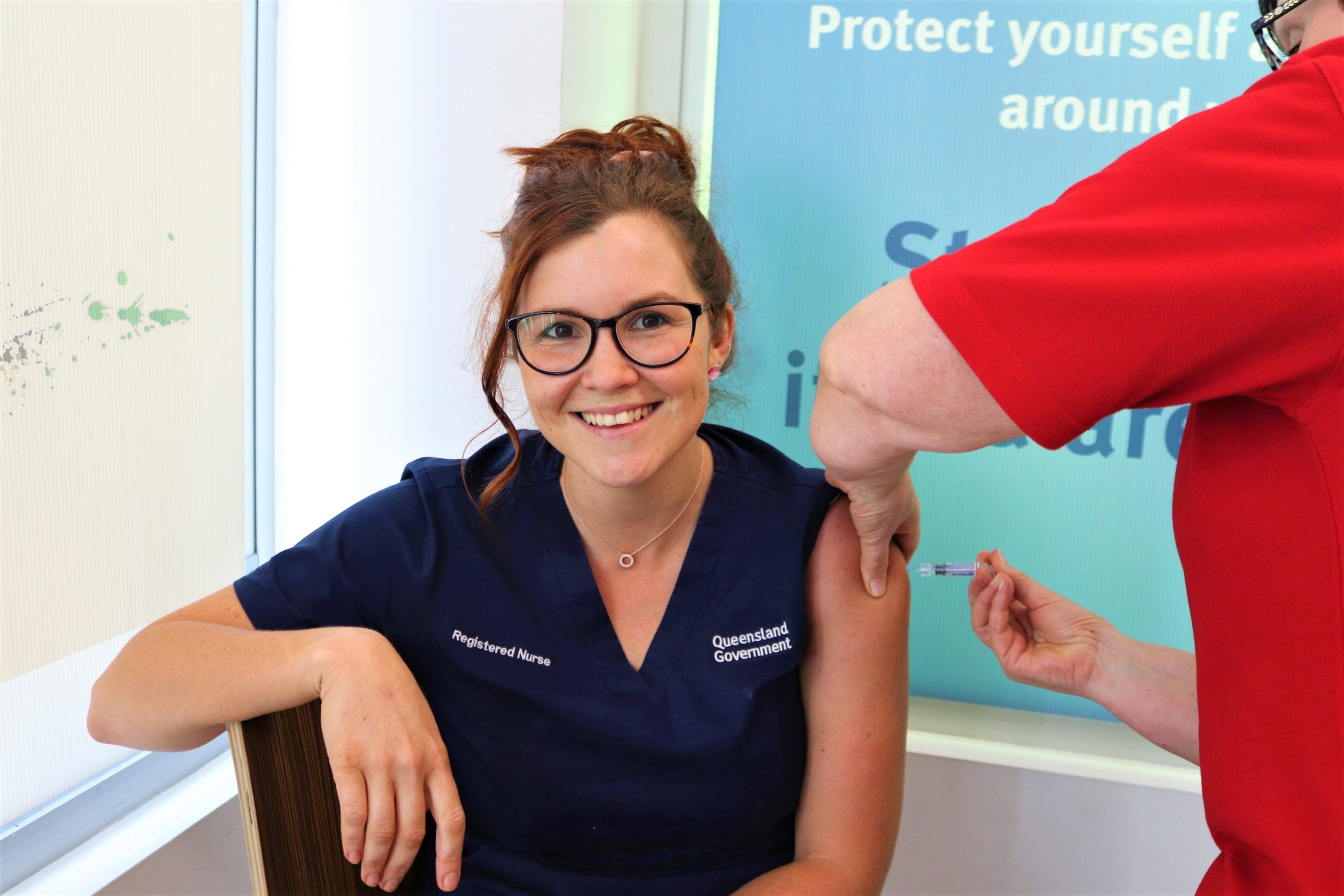Mackay Hospital and Health Service has started its annual influenza vaccination campaign ahead of the flu season to help protect staff, patients and the community.
Vaccination teams across the health service have seen a steady flow of staff rolling up their sleeves with more than 1,100 already receiving their free vaccine since the campaign’s launch on 29 April.
Mackay Hospital and Health Service Infection Prevention & Management Clinical Nurse Consultant Jenny Seymour said vaccination is the single best protection against influenza, by building immunity to the virus and helping to prevent transmission of the virus to other people.
“Annual vaccination is the most important measure to prevent influenza and its complications,” Ms Seymour said.
“The timing of the vaccination aims to achieve the highest level of defence during influenza season in Queensland, which is typically June to September, with the peak historically in August.
“While protection is generally expected to last for the whole season, the best protection against influenza occurs within the first three to four months following vaccination.”
Communities across the health service have done an exceptional job over the past 16 months responding to increased awareness around social distancing and rigorous hand hygiene helping to limit flu-like viruses throughout the year.
Influenza is a highly contagious and potentially serious disease that can be spread through coughing and sneezing.
People at highest risk of complications from flu include those with pre-existing medical conditions. However, previously healthy people can also have severe complications.
Ms Seymour said each year the influenza vaccine is developed to reflect the circulating strains, providing the best protection against current strains of flu.
“Influenza vaccine can change from year to year as new strains of influenza virus appear. This is the reason vaccination against influenza is given every year,” she said.
“The 2021 vaccine differs from last year’s vaccine in Australia with the inclusion of two new A type strains.
“After you have been vaccinated, it’s important to keep practising standard infection control measures to help stop the viruses spreading and to keep yourself and others safe.
“Stay home if you’re unwell, remember to cover your cough or sneeze and wash your hands afterwards and continue to maintain social distancing.”
People should also be aware that if they have received a COVID-19 vaccine it won’t protect them against influenza, getting vaccinated against both influenza and COVID-19 provides the best protection against both illnesses.
It is recommended to wait at least 14 days between the COVID-19 vaccine and the influenza vaccine.
Queensland Health provides the following ‘at risk’ groups with free influenza vaccination each year:
- all children from 6 months to less than 5 years of age
- all adults aged 65 years and older
- pregnant women
- all Aboriginal and Torres Strait Islander people aged 6 months and over
- individuals aged 6 months and older with medical conditions which increase the risk of influenza disease complications
People within these groups and other members of the community can receive their flu vaccination from their doctor, health care provider or pharmacist.



